Is WD-40 Toxic? Risks, Toxicity, & Alternatives
-
Visnja Radosavljevic
- Last updated:
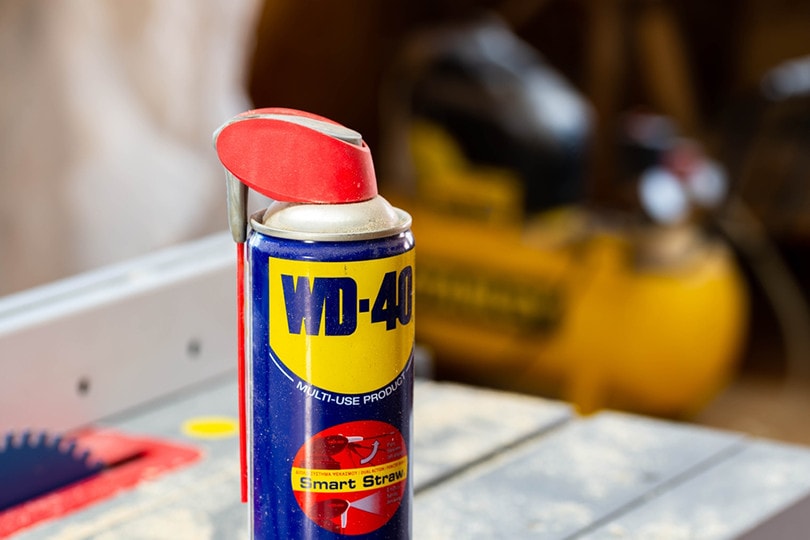
WD-40 is a water displacement chemical that prevents rust and many use it for cleaning and lubricating.
WD-40 is one of the most popular chemicals in the USA, and it has become essential for almost everyone with a toolbox. While WD-40 has various purposes, it also contains some questionable ingredients which make people think it’s harmful and toxic.
So, is WD-40 toxic? And, is it harmful? WD-40 contains some toxic chemicals and can severely harm your health if ingested.
Keep reading to learn more about WD-40, its ingredients, its primary uses, suitable alternatives, and whether it’s potentially harmful.
What Is WD-40?
WD-40 is a popular chemical that’s been around since 1953. The WD stands for “water displacement,” while the 40 represents the 40th version of the WD formula. Originally, WD was mostly used by the military, which cleaned missile parts with this solution.
Nowadays, people use WD-40 for squeaking hinges, cleaning rusty items, and various things around the home.
Most consider WD-40 a lubricant, although it’s not a true lubricant. However, WD-40 can act as a lubricant because it dissolves dirt, rust, and grime.
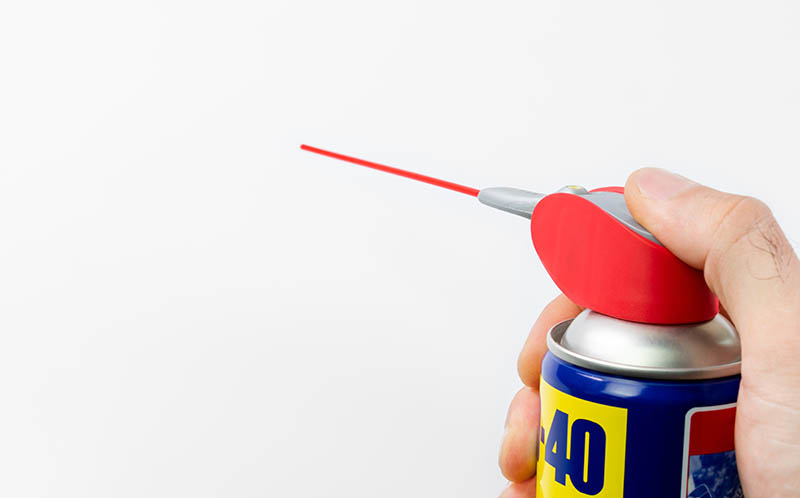
The Ingredient List of WD-40
WD-40 manufacturers keep the ingredients a secret, so nobody is entirely familiar with this product’s ingredients. However, most WD-40 cans contain a general ingredient list, which gives us at least some insight into what this product is all about.
Knowing the main ingredients will help determine if WD-40 is toxic and how it affects our health.
- LVP aliphatic hydrocarbon
- Petroleum base oil
- Carbon dioxide
- Aliphatic hydrocarbon
Aliphatic Hydrocarbon
This ingredient of WD-40 represents hydrocarbons based on C-chain atoms, commonly known as petroleum distillates.
- Methane
- Ethane
- Propane
- Butane
Most organizations, including CDC, ECHA, and GHS, classify these chemicals as toxins that can jeopardize your health.
- Skin irritation
- Allergies
- Dizziness
- Cancer
- Permanent lung damage
- Respiratory issues
- Organ damage and injuries
- Death
Petroleum Base Oil
The term petroleum-base oil is quite broad—many hydrocarbon-based substances can be categorized as petroleum-based oils.
These substances may not be the best to be around and can negatively affect your health.
- Problems with the central nervous system
- Cardiovascular issues
- Kidney problems
- Cancer
Is WD-40 Toxic?
As WD-40 manufacturers do not disclose their formula, we can’t determine how toxic WD-40 truly is. However, looking at the known ingredients, it’s undeniable that WD-40 contains some toxic chemicals and can severely harm your health.
WD-40 has flammable properties and can cause a lot of different health issues, depending on the contact between you and this product.
- Skin contact — When WD-40 gets in contact with your skin, it can cause allergies, rashes, and irritations. You should immediately wash your skin with water and soap if this happens.
- Eye contact — When WD-40 gets in contact with your eyes, it can cause redness, irritation, itching, and tearing. If this happens, you should immediately wash your eyes and visit a doctor if the itching and irritations don’t stop.
- Inhalation — If you inhale small amounts of WD-40, there’s no need to worry. However, inhaling high concentrations of WD-40 could lead to various respiratory and nasal problems, as well as problems with the central nervous system. Inhaling WD-40 could be deadly, so you should be extremely careful when handling this chemical.
- Ingestion — If you ingest WD-40, you could face various issues, including nausea, dizziness, diarrhea, and vomiting. Also, there’s a potential risk of the chemicals entering your lungs, which could cause severe lung damage and even be fatal.
The precise level of risk when using WD-40 varies per ingredient, and their precise concentration remains unknown, as it’s a carefully guarded secret of WD-40 manufacturers.
Because of its toxicity, it’s important to keep WD-40 away from children to prevent them from getting in contact with the chemicals inside.
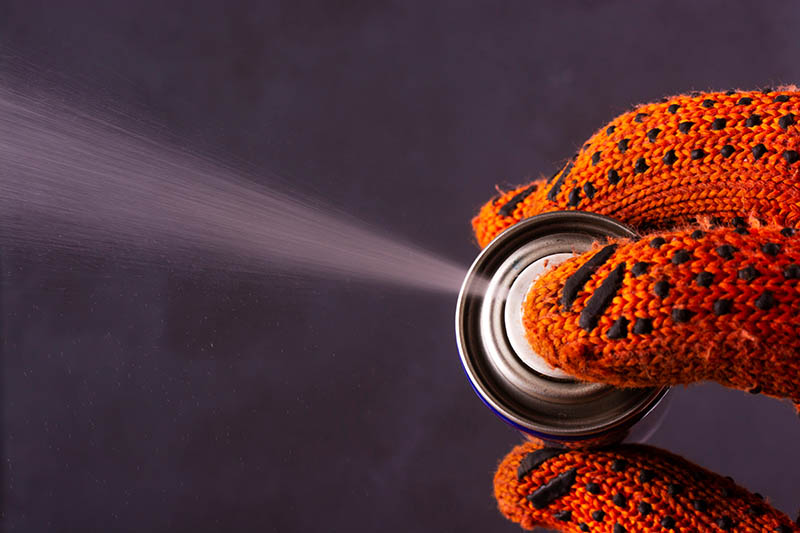
Is WD-40 Toxic To Pets?
The chemicals inside WD-40 are as toxic to pets as to humans. While your kitty or dog won’t experience any problems if they lick WD-40 once, continued ingestion or inhalation could cause severe health damage to your pet.
You need to remember that animals don’t have a way of judging if something is harmful to them, so they’ll likely taste, lick or touch anything they find nearby. That said, you should keep WD-40 away from your pets to prevent possible issues.
Suitable Alternatives For WD-40
Luckily, there are a lot of suitable alternatives that are better for you while still being as efficient as WD-40. If you’re looking for a substitute for WD-40, you should consider using:
Cooking Oils
Most people keep some cooking oil in their home, from olive and coconut to other vegetable oils. They are essential for cooking, but they can also come in handy when you have things squeaking around your home.
All you need to do is apply the oil onto a cotton swab or a paper towel and apply it to the affected area. The oil will lubricate the area, eliminating the squeaking and squealing sounds.
Cooking Spray
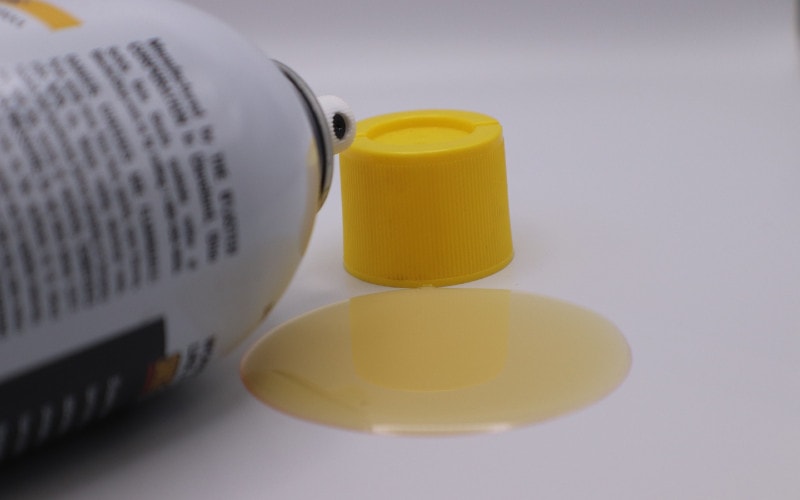
If you have a cooking spray in your home, you can also use it for fixing things in your home instead of just cooking. As cooking sprays are made of oil, they can quickly lubricate any area, and, since they are in a spray can, they are easy to use, which is convenient.
Also, if your children or pets get in contact with cooking oil, you won’t have to worry about possible issues as it’s harmless to our health.
Plant-Based/Food-Grade Lubricants
There are a lot of different companies that produce plant-based and food-grade lubricants, which are equally effective as WD-40, if not even better. They are safer to use and won’t cause any harm to you or the environment.
Petroleum Jelly
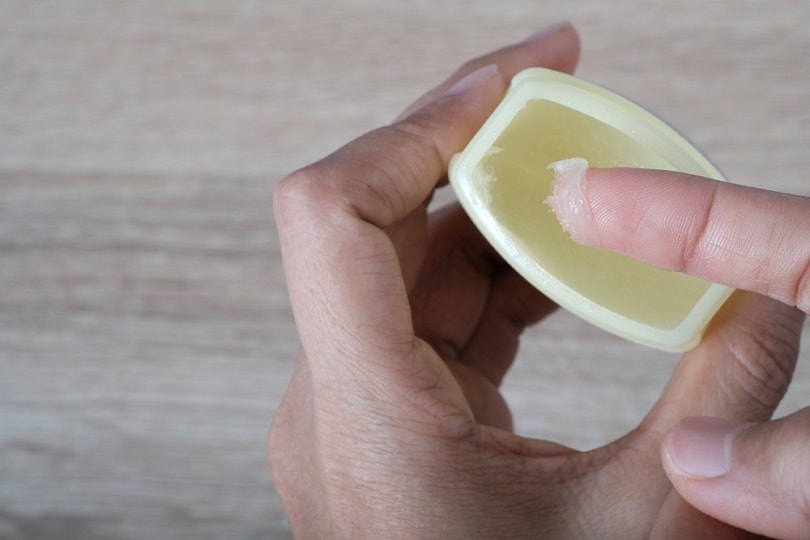
Most use petroleum jelly for medical purposes, especially on cracked, dry skin, as it has moisturizing properties. However, petroleum jelly can also act as an excellent lubricant, which is why it can be a great substitute for WD-40.
Dish Soap
It’s not uncommon for people to experience various squeaks around their households. However, while many believe they instantly need lubrication, a good wash is sometimes enough to stop the annoying sounds.
Occasionally, things can get squeak or squeal simply because they’re dirty, so that’s where dish soap comes in handy. You can use it with lukewarm water to wash the affected area. Typically, if the dirt is the only problem causing the sounds, this wash will entirely eliminate them.
Final Thoughts
Although there’s no way to find out the exact ingredients of WD-40, one thing is for sure—WD-40 is potentially harmful to you. If you’re someone who uses WD-40 for various things around your home, it goes without saying that you should take all necessary safety precautions and be very careful while using it.
- https://chem.libretexts.org/Courses/Sacramento_City_College/
- https://www.cdc.gov/niosh/idlh/8002059.html
- https://echa.europa.eu/substance-information/-/substanceinfo/100.059.208
- https://pubchem.ncbi.nlm.nih.gov/ghs/
- https://health.uconn.edu/poison-control/about-poisons/cleaning-products/hydrocarbons-the-deadly-poison-found-in-everyones-home/
- https://www.epa.gov/emergency-response/petroleum-oils
- https://files.wd40.com/pdf/sds/specialist/wd-40-specialist-spray-and-stay-gel-lubricant-aerosol-us-ghs-sds.pdf
Featured Image Credit: Benedek Alpar, Shutterstock
Contents
